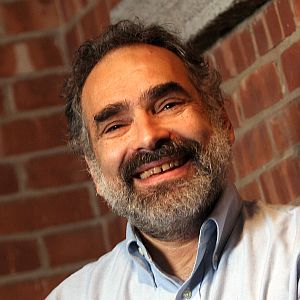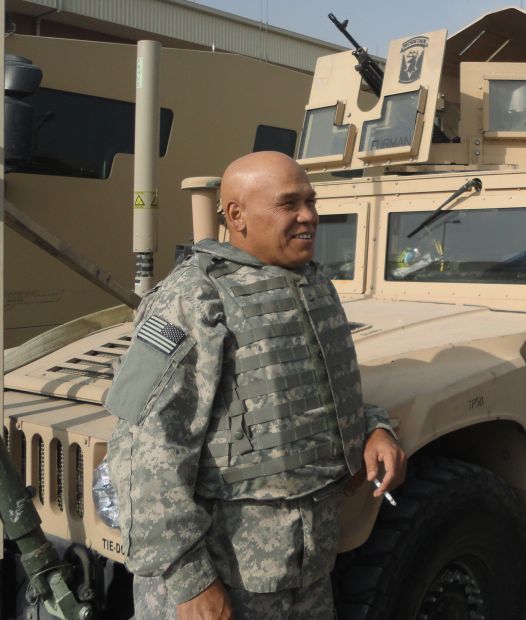A few hours after landing in Afghanistan, I was sitting in the shade in an area over on the military side of the Kabul airport. The area seemed to be a hangout for soldiers waiting to be transported to other locations. Some napped, others played cards. A group of French soldiers unshouldered their massive packs and lined them up in neat rows on the sidewalk. Then they waited. As I waited, a group of a dozen or so young Afghan men arrived. A civilian contractor in charge of them instructed them to sit down and they took their places on the benches next to me. I struck up a conversation with one of them, a fellow named Saeed. The men, all in their 20s, were newly recruited translators. They were being sent south to Helmand Province one of Afghanistan's high combat areas. Saeed was clearly nervous about the prospect of going from the relative peace and calm of Kabul to an area of greater conflict. The job, he told me, pays 700 dollars a month. He needs the money to get married, which is an expensive proposition in Afghanistan. The wedding costs money and he must give the bride's family 4 or 5 thousand dollars. Saeed also wants to save money to come to the United States. He says that when he took the translator job, there were assurances that would be possible. I hope his hopes are well founded. I thought of the difficulties Iraqi translators who worked for the U.S. military had coming to America.
Akbari's life as a translator couldn't be more different. He spends his days riding in an armored Humvee with Vermont Guard members as they deliver personnel and equipment to the 11 forward operating bases scattered around Kabul. Akbari doesn't go into the field, and most days he doesn't have to do any translating. He's there in case there's a mishap on the road or troops come into contact with Afghan civilians. Akbari is 53 and a Kabul native. He and his family moved to the U.S. after the Soviet invasion and his wife and six children live in San Francisco while Akbari earns a living as a translator in his native country. He lives on the base and he told me the only time he ventures into Kabul is inside a humvee with the Vermont troops. Steve ZindVermont Public Radio
Afghanistan
Reporter's Journal
VPR's Steve Zind is spending three weeks in Afghanistan, covering some of the 1,500 members of the Vermont National Guard who are deployed there.
He'll provide a close-up view of the Guard's mission and how things are going from their perspective.
The Reporter

Steve has been with VPR since 1994, first serving as host of VPR’s public affairs program and then as a reporter, based in Central Vermont. Many VPR listeners recognize Steve for his special reports from Iran, providing a glimpse of this country that is usually hidden from the rest of the world.
